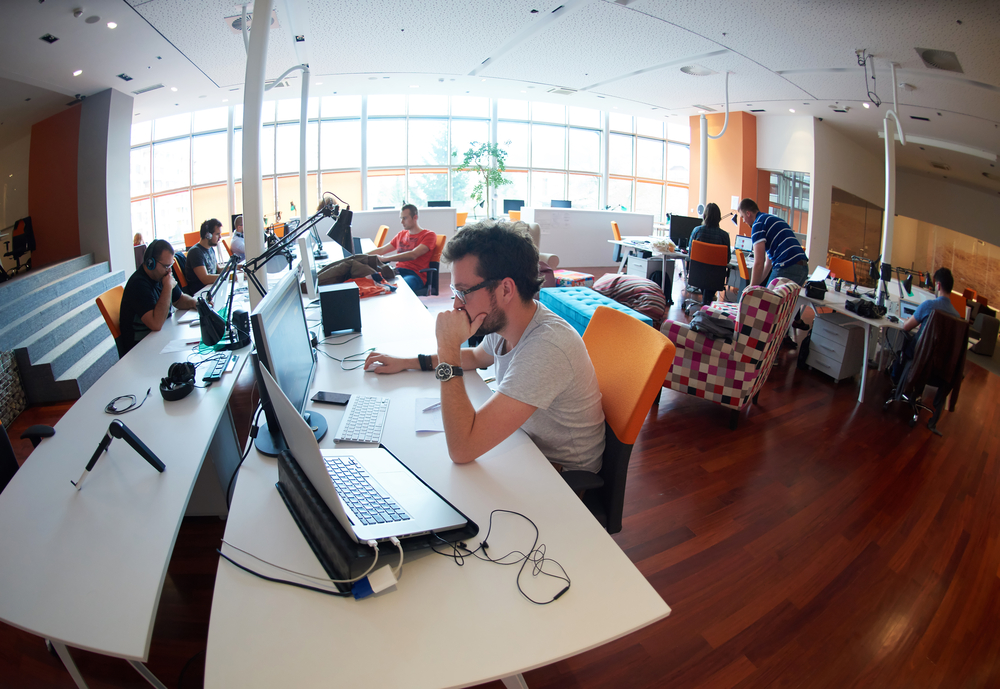Combining behavioural science with market trading, Chasing Returns founder Ann Hunt has discovered a more profitable path for brokers and investors. She talks to John Kennedy.
As Chasing Returns founder Ann Hunt recalls, she came late into entrepreneurial life.
“I never as a youngster wanted to start my own business, that wasn’t me. Then I was straight into tier 1 banking, a tiny cog in a large wheel and really enjoyed my time in banking. I loved trading, everything about it. But when I moved back to Ireland I actually fell into being entrepreneurial by getting made redundant,” Hunt recalls.
“80pc of traders lose money – so I pretty much decided that if I can build the software to work for me I can make it work for other people”
There is no common path to starting a business, but Hunt is an interesting subject as a female founder who started up late in her career as a sole founder rather than a team-based enterprise and prizes breaking-even ahead of raising venture capital.
Her company Chasing Returns has developed a risk management platform for financial traders that has been adopted by more than 50,000 traders. Last year, the company secured a large deployment with Canadian FX broker Oanda and was also selected to take part in the Financial Conduct Authority (FCA) regulatory sandbox in the UK. The company also secured a key round of investment to enable it to develop its technology and open up new markets.
Hunt will be telling her entrepreneurial story at the upcoming Starup Grind in Dublin on 15 July at Google’s EMEA HQ.
After a high-flying career in the trading world she came back to Ireland during the dot-com boom and joined a company called Ebeon which subsequently became on of the high-profile casualties when the bubble burst.
“They went belly-up while I was on maternity leave with my first child and it was ‘what do I do now?’”
Establishing her own consultancy Hunt was able to work flexibly enough to raise her young family but also take part in the success of Irish fintech start-ups like Brite:Bill and Clavis Insight.
“I got really interested and inspired, helping start-ups to scale and I really enjoyed that but it was always other peoples’ start-ups because I was doing it as a consultant and I had definitely caught the bug for it.”
This coincided with Hunt returning to trading as a retail trader. “At first, I did all the things I was absolutely convinced I would not do in terms of the psychological bias that happens to people when they suddenly start risking their own cash and the psychology of making the absolutely dumbest decisions under panicky situations.”
Her data scientist training kicked in and she began to wonder if there was a way to detect when she was making emotional rather than rational investment decisions.
“80pc of traders lose money – so I pretty much decided that if I can build the software to work for me I can make it work for other people. So, I was pretty much the first user of it and that’s how I fell into it and the opportunity came up to take some time off and I went off to Wayra, blagged a free desk and built a few models, tested them out and then went off to the NDRC and took it from there.”
Trading places
Now five years in business, Hunt recalls that very early on she focused on winning international rather than local business.
“Most of the global brokers would be headquartered in London or certainly would have a big European head office in London, so my first traction was through London. The biggest traders in the world are in Asia. Hong Kong has 10pc of the population of the UK but has more traders. So, we are talking 10 times more people trade in Asia, Japan is absolutely massive, so it is a very cultural thing.
“2018 was a pivotal year for us and we needed to get a big anchor client and our big anchor client went live in January of that year. We also signed a big global broker Oanda, which is headquartered in Canada and in 150 countries in 10 languages across the globe and we are completely embedded in their technology now.”
What made Chasing Returns stand out was it had a technology that combined data science with psychology.
“We were selling to a culture of brokers who knew that all their traders were losing money and were very frightened of ‘do we really want to show them how much they lose and where are their strengths and weaknesses?’ So, initially we had this fear from brokers that if they gave this technology to their users they were going to close their accounts. And as much as you can try and convince people that is not going to be the case, getting somebody to take that leap at scale which is why 2018 it was a pivotal year for us.”
Clients’ fears proved to be unfounded as traders responded favourably to the technology.
“We are in this unique position in that the more traders see where their weaknesses are but they are able to be confident about it and actually trade, not less, but they trade differently.
“So what we do with traders is we make them trade much smaller sizes but more often and they start to improve and, as they improve, they trade more and more often.
“We’ve been able to get to that point at scale and say your traders will do better but actually you will do better. Many brokers felt that if traders started to improve their profitability would go down but we have proven it to be otherwise. So that was what 2018 was all about but now we can definitively say that your traders will do better on average.”
Voyage of the solo founder
Hunt doesn’t fit the stereotype of your average Irish tech founder. “I was a bit older, I was a single founder, I was a female. And at the time accelerators in Ireland were saying ‘no single founders, you have to be a team’.”
Hunt went on to prove everyone wrong. “There is a culture in Ireland that says the best start-ups have to have three founders and they need this much money and every venture capitalist in Ireland has a playbook and you have to fit into their playbook … And it is kind of a cliché here and my personality rebels against that anyway.
“But I was building a software-as-a-service (SaaS) business. We sell to brokers and businesses who deal with acquisition, lifetime value and churn. So, I always felt this is not going to fit in with what Ireland would expect from a start-up anyway.”
Trusting her gut, Hunt powered on with the intention of building a revenue-positive, profitable business with international clientele; only raising outside investment when it meant underpinning product development or expanding into new markets. “Raising €5m for the sake of it is not a goal, that’s just stupid, that just means you didn’t make revenue. So I was always going to be organically growing the business with break-even being the first major milestone of the business. In terms of priorities getting the first client was number one, but breaking-even was close second, and not being a unicorn or having 15 offices or whatever that is.
“The more I looked at what people asked and what I would acheive the more I realised I didn’t fit any of those moulds. I didn’t take on VC money, I was offered it and had term sheets. I am really lucky with my private investors, they very like-minded people and we work closely together and are happy to go against the grain in some ways in terms of how the business is getting built.
“My age gave me the confidence to go ‘that just doesn’t feel right to me, this is what I am going to do’.
“This year is about breaking even and keeping our options open. The fundamentals are there. Our plan is to move into the professional trading space and we will be fundraising for that. So, we have a very clear goal what we would raise funding for and what it would achieve.”
Written by John Kennedy
Published: 8 July 2019
-
Bank of Ireland is welcoming new customers every day – funding investments, working capital and expansions across multiple sectors. To learn more, click here
-
Listen to the ThinkBusiness Podcast for business insights and inspiration. All episodes are here. You can also listen to the Podcast on:
-
Spotify
-
SoundCloud
-
Apple





